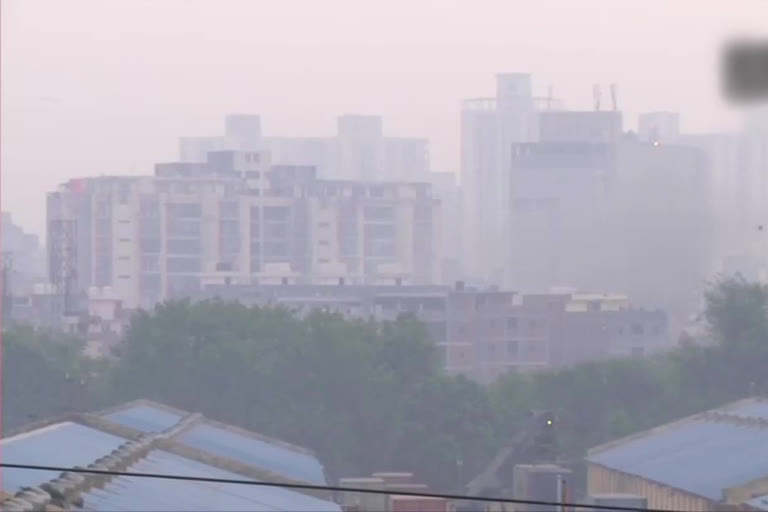New Delhi: Pollution levels dipped slightly in the national capital on Tuesday morning due to favourable wind speed, though the air quality was still in the "poor" category.
The Ministry of Earth Sciences'' air quality monitor, SAFAR, said the air quality index (AQI) was likely to slip to the "very poor" category by Wednesday due to a change in the wind direction and a reduction in the wind speed.
The city recorded an air quality index (AQI) of 227 at 9 am on Tuesday. The 24-hour average AQI was 244 on Monday. It was 254 on Sunday and 287 on Saturday.
An AQI between 0 and 50 is considered ''good'', 51 and 100 ''satisfactory'', 101 and 200 ''moderate'', 201 and 300 ''poor'', 301 and 400 ''very poor'', and 401 and 500 ''severe''.
Calm winds and low temperatures allow the accumulation of pollutants, while high wind speed helps in their dispersion.
Expecting further deterioration in the air quality in the coming days, the Supreme Court-mandated Environment Pollution (Prevention and Control) Authority (EPCA) on Monday asked Uttar Pradesh and Haryana governments to be ready to close thermal power plants that do not meet the standards laid down in 2015.
In separate letters, EPCA chief Bhure Lal asked the two state governments to review the preparedness for closing thermal power plants and to inform the pollution watchdog about it, as well as the steps that will be taken to ensure compliance with the necessary shutdown during the peak winter period.
SAFAR said a change in surface wind direction is expected by early Wednesday which is "likely to bring calm surface wind conditions, leading to low ventilation and deterioration of AQI".
"Very poor AQI is predicted for Wednesday and Thursday," it said.
The stubble fire count around Haryana, Punjab, and neighbouring regions stood at 1,090 on Monday. The share of farm fires in Delhi''s PM2.5 pollution stood at 10 per cent.
READ: India Army vice-chief meets US Indo-Pacific commander, discusses strategic partnership in region
"Though transport-level wind direction is favourable, an increase in the wind speed and local surface winds led to a decrease in stubble (burning) contribution in Delhi''s PM2.5," SAFAR said.
The share of stubble burning in Delhi''s PM2.5 pollution stood at 17 per cent on Sunday. It was 19 per cent on Saturday, 18 per cent on Friday, around one per cent on Wednesday and around three per cent on Tuesday, Monday and Sunday.
On Monday, Delhi Chief Minister Arvind Kejriwal requested Union Environment Minister Prakash Javadekar to hold monthly meetings with the CMs of Delhi, Punjab, Haryana and UP to curb air pollution, saying there is a lack of political will to address the problem of stubble burning.
In a virtual press briefing, he said the affected states have been unable to find a solution to stop stubble burning and prevent air pollution. "I believe pollution due to stubble burning can be controlled in a short span of time. But a lack of political will is visible in doing that."
Environment Minister Gopal Rai said the Delhi government will deploy 2,500 environment marshals across the city to generate awareness about its recently launched anti-pollution campaign, "Red Light On, Gaadi Off".
He also said a meeting of environment ministers of Delhi, Punjab, Haryana, Rajasthan and Uttar Pradesh with the Centre must be held every 15 days to discuss matters pertaining to pollution and stubble burning.
Such meetings will help in improving coordination between the states, he said.
PTI
